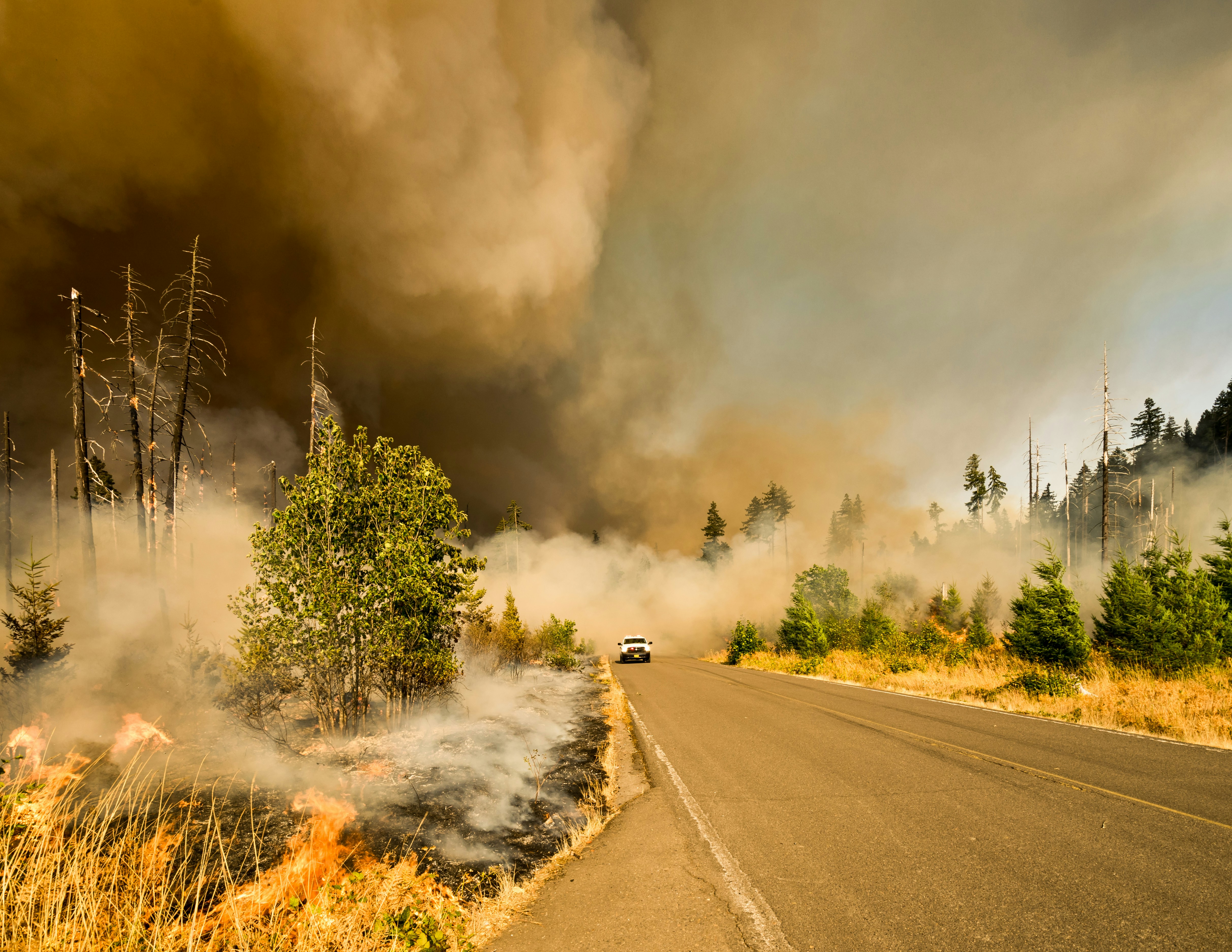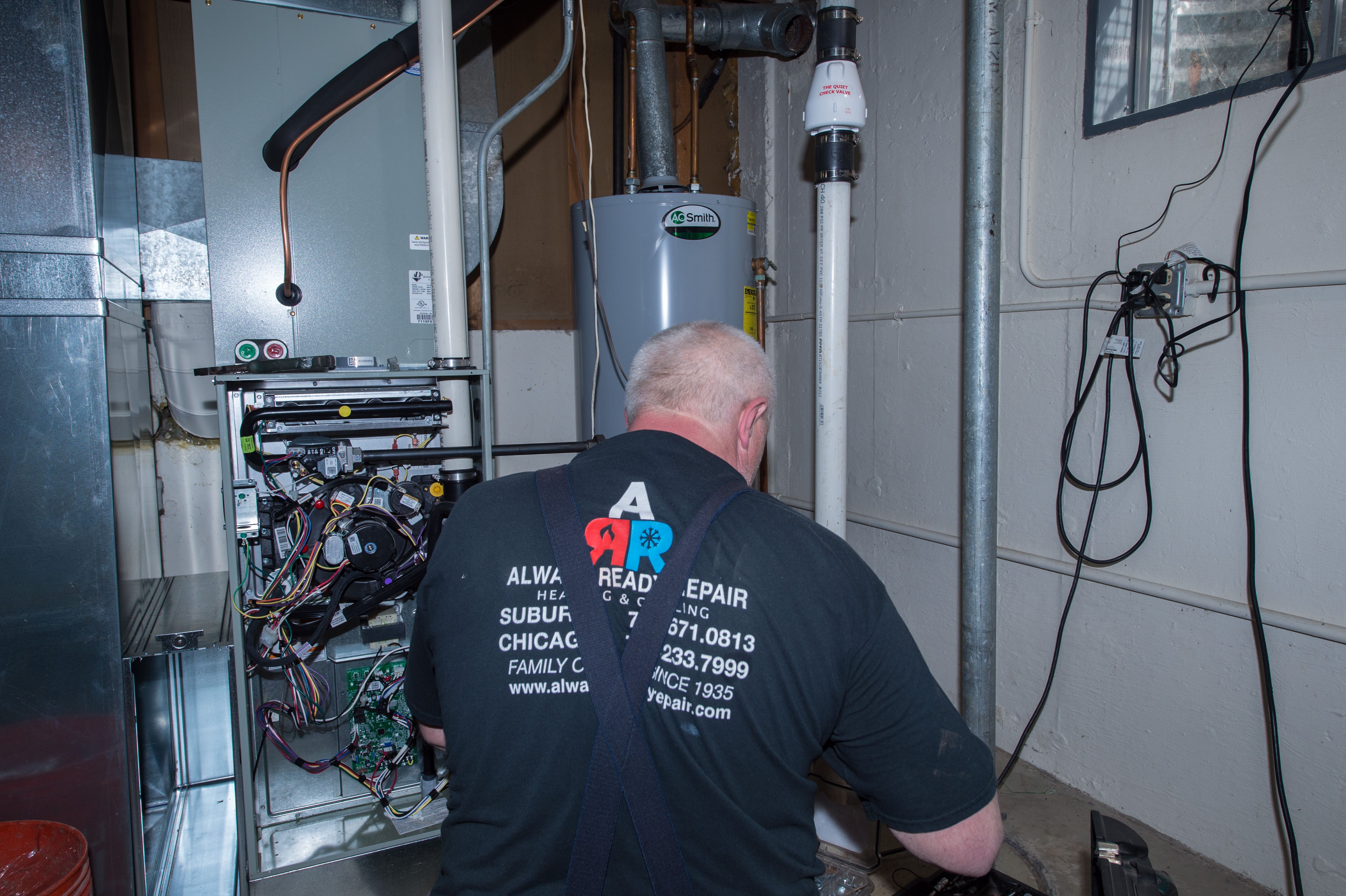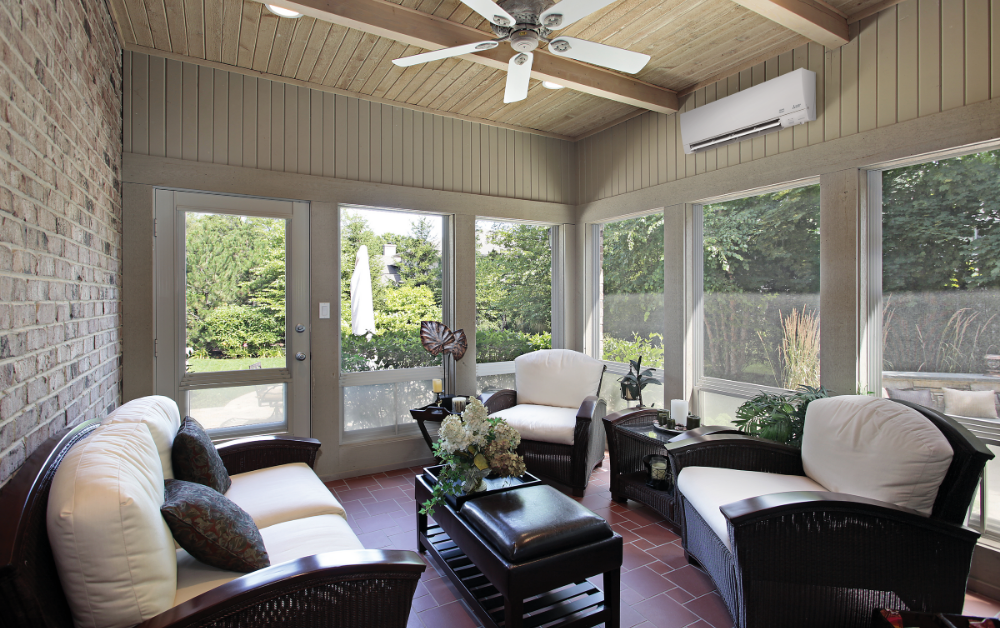Introduction: Wildfires in Canada Are Affecting Chicago’s Air Quality. Here’s What You Can Do
If you’ve stepped outside recently and noticed a smoky haze or itchy eyes, you’re not imagining things. Wildfires burning across Canada have caused waves of smoke to reach the Chicagoland area. Although we are hundreds of miles away from the source, the effects on our air quality are real and concerning.
Poor air quality is a hidden health risk, especially for children, older adults, and anyone with asthma or other respiratory issues. Thankfully, your HVAC system is more than just a comfort tool. It can actually play a key role in protecting your home’s indoor air quality during these conditions.
Understanding How Wildfire Smoke Impacts Air Quality
What’s in Wildfire Smoke?
Wildfire smoke contains harmful gases and tiny particles called PM2.5. These fine particles are small enough to enter your lungs and even your bloodstream. They come from burning vegetation, plastics, and buildings.
Why Is It Dangerous?
Even if you can’t smell smoke, the air can still contain dangerous pollutants. Breathing in wildfire smoke can lead to:
- Itchy eyes, sore throat, and runny nose
- Worsening asthma or other breathing problems
- Headaches and fatigue
- Long-term cardiovascular or respiratory damage
Here in the Chicago suburbs, the Air Quality Index (AQI) has already reached unhealthy levels several times this year. That’s why keeping your indoor environment safe should be a top priority.
How Your HVAC System Helps Clean the Air in Your Home
When the air outside is filled with smoke and pollution, your HVAC system can help keep the inside of your home clean and safe.
1. Filters Out Smoke and Particles
Your HVAC system uses filters to remove pollutants from the air. A high-efficiency filter like a MERV 13 or better can catch smoke particles and other irritants that worsen indoor air quality.
2. Keeps Air Circulating
A properly working HVAC system promotes steady airflow throughout your home. Whether you use a central air conditioner, ductless mini split, or heat pump, good circulation is key to moving filtered air and preventing stale or smoky air buildup.
3. Reduces the Need to Open Windows
In smoky conditions, keeping your windows and doors closed is essential. Your AC system lets you cool your home without letting polluted outdoor air inside.
4. Supports Add-Ons Like Air Purifiers
Many modern heating and cooling systems can be paired with whole-home air purifiers or dehumidifiers. These upgrades remove additional pollutants and maintain humidity levels that protect your eyes, throat, and lungs.
Tips to Keep Your HVAC System Working During Wildfire Events
If smoke and pollution are in the air, make sure your HVAC system is ready to perform at its best.
1. Upgrade Your Air Filter
- Use a filter with a MERV rating of at least 13
- Choose filters designed to capture wildfire smoke and fine particles
- Check your filter every few weeks and change it if it looks dirty
2. Schedule Professional Maintenance
Call your trusted HVAC company, like Always Ready Repair, to:
- Inspect and clean your evaporator coil
- Check for duct leaks or weak airflow
- Ensure your system is running efficiently
3. Set Your System Fan to “On”
Instead of “Auto,” use the “On” setting to keep air moving through the filter even when heating or cooling is not running. This helps clean the air continuously.
4. Seal Up Leaks
Make sure your home is sealed tight to prevent outdoor smoke from leaking in. Check for gaps around:
- Doors and windows
- Baseboards and plumbing
- Attic and crawlspace access points
5. Use an Air Quality Monitor
Indoor air quality (IAQ) monitors give you real-time feedback on your home’s air. These tools help you know when it's time to change filters or adjust settings.
Is It Time to Upgrade Your HVAC System?
If your HVAC system is over 15 years old or not filtering air effectively, consider upgrading to a more efficient model. Modern systems offer better filtration, more energy savings, and improved comfort.
Some options to consider:
- Central air conditioning with upgraded filtration
- Heat pumps for year-round heating and cooling
- Smart thermostats and zoning systems
- Whole-home purifiers or humidifiers
A well-functioning system will not only keep your home cool but will also protect your health by reducing your exposure to outdoor pollutants.
Frequently Asked Questions
Can smoke get into my HVAC system?
Yes, especially if you have fresh air intakes, unsealed ductwork, or open windows. That’s why sealing your home and upgrading filters is so important.
What type of filter is best for wildfire smoke?
Look for filters rated MERV 13 or higher. These are designed to trap smaller particles like those found in smoke.
Should I keep windows and doors closed?
Yes. During poor air quality days, you should keep your home sealed and rely on your HVAC system for ventilation and cooling.
Will a portable air purifier help?
Yes, especially in bedrooms or smaller spaces. But for whole-home protection, a central air purifier connected to your HVAC system is more effective.
How often should I replace my air filter?
Check it every two to four weeks during wildfire season. Replace it as soon as it looks dirty.
Final Thoughts: Your HVAC System is Your First Line of Defense
Wildfire smoke is becoming a more common problem, even for those of us living far from the flames. Thankfully, your HVAC system can do more than just keep you comfortable. With the right setup and care, it can also protect your lungs, improve indoor air quality, and reduce exposure to harmful particles.
If you're unsure whether your system is prepared, or you’d like to upgrade for better filtration, Always Ready Repair is here to help. We offer expert HVAC service, system upgrades, and air quality solutions for homes across the Chicago suburbs.
Need Help Improving Your Indoor Air Quality?
Contact Always Ready Repair today. Whether it’s filter replacement, HVAC maintenance, or a new system installation, we’re here to make sure you and your family can breathe easier—no matter what the skies look like outside.
Additional Resources for Air Quality Awareness
- AirNow.gov - Check Your Local Air Quality Index
- CDC Guidelines on Protecting Health During Wildfires
- EPA Indoor Air Quality Tips







).png)










